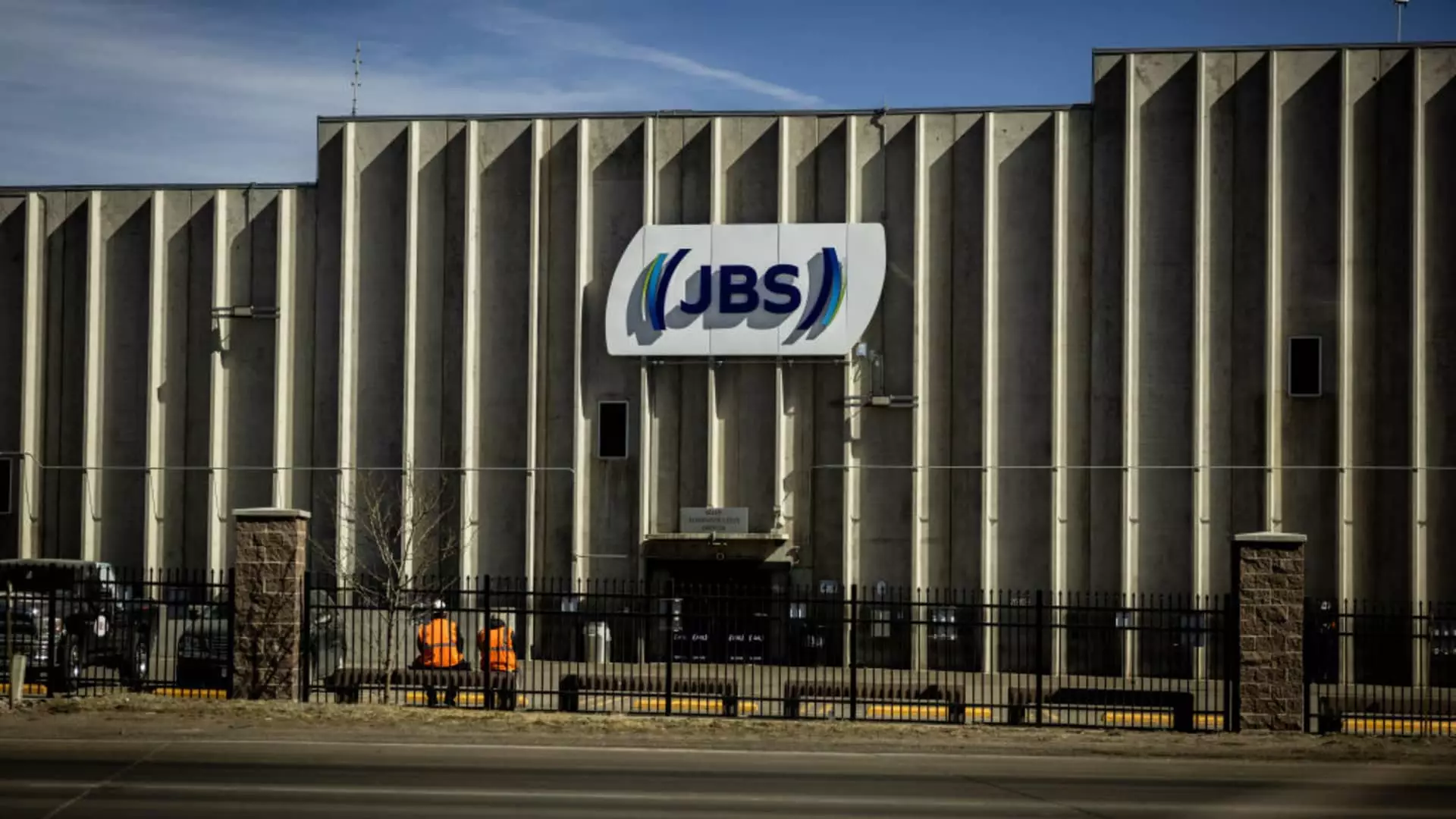When the Brazilian meat conglomerate JBS took its first steps onto the U.S. public market, it did so with considerable fanfare—its shares debuted at $13.65, catapulting the company’s valuation to an astounding $30 billion. This move, taking place on the New York Stock Exchange and distinctly surpassing rival Tyson Foods’ market capitalization, seemed like a significant opportunity for investors. However, beneath this impressive façade lies a tumultuous history that casts a long shadow over the company’s present and future prospects.
Understanding the Historical Context
Founded over seventy years ago, JBS has witnessed a spectacular rise to dominance in the global meatpacking sector. Last year’s reported revenues of $77.2 billion, along with net profits of $2 billion, reflect JBS’s tremendous operational scale. With strategic expansions into critical markets including the U.S. and Australia, the company’s ability to capitalize on a burgeoning meat market is undeniable. Yet, this success does not erase the myriad controversies JBS has faced, including its tumultuous relationship with regulatory bodies and government investigations related to corruption and mismanagement.
The dual-listing plan—which saw JBS delist from the Sao Paolo Exchange just prior to its U.S. launch—was not simply a matter of corporate growth; it resembled more of a strategic retreat from scrutiny tied to its problematic history. This company’s past is rife with scandals, notably the high-profile corruption investigation that resulted in hefty fines in 2017 and 2020. Such developments raise questions about the integrity of their corporate governance and cast a pall over this public debut.
A Divided Political Landscape
The reaction from lawmakers across the political spectrum has been overwhelmingly skeptical, which is telling in itself. The governmental scrutiny surrounding JBS, particularly from both sides of the aisle, highlights an uncomfortable truth: political leanings aside, the company’s alarming track record poses a significant risk not just to investors, but to ethical business practices in the industry. The fact that a company with such deep ties to corruption could secure a listing in the U.S. calls into question the regulatory safeguards that should be in place to protect the marketplace.
The political calculations are also striking—recent donations made by JBS to President Trump’s inauguration committee underline how intertwined corporate America is with politics. This relationship carries ethical implications, particularly when a company that has faced bribery charges can so easily pour money into political pockets. The cycle of influence can create an environment where ethical standards are dwarfed by profit motives, and this continues to undermine public trust in large corporations.
Environmental Concerns and Reputational Damage
As if the corporate misdeeds weren’t enough, JBS has also faced increasing scrutiny regarding its environmental practices. Prominent accusations of purchasing cattle from illegal sources further complicate the company’s veneer of success amid a growing global focus on sustainability and ethical sourcing. In today’s market, investors are becoming increasingly attuned to the environmental impacts of their investments; this could create potentially fatal repercussions for JBS if it fails to clean up its act.
With global awareness mounting regarding deforestation, particularly in the Amazon, JBS’s operations present an unstable risk that investors must weigh carefully. They are not merely investing in a company—they are, knowingly or unknowingly, becoming part of a larger narrative on corporate responsibility and ecological responsibility. The ramifications of neglecting these obligations could be devastating, and any jolt in consumer sentiment could alter the trajectory of the company’s market success.
A Fleeting Opportunity or Sustainable Growth?
As JBS settles into its new public status, the fundamental question remains: Is JBS’s phenomenal market valuation a reflection of robust, sustainable growth, or just another chapter in a story fraught with ethical quandaries and reputational risks? For investors, the implications are profound. As they navigate through the labyrinth of JBS’s extensive portfolio and checkered history, it becomes crucial to discern whether the potential for significant returns is worth the gamble. The specter of past scandals and ongoing controversies offers a contorted backdrop against which the future of JBS can be assessed, rendering it a critical case study in modern business ethics and stakeholder expectations.

